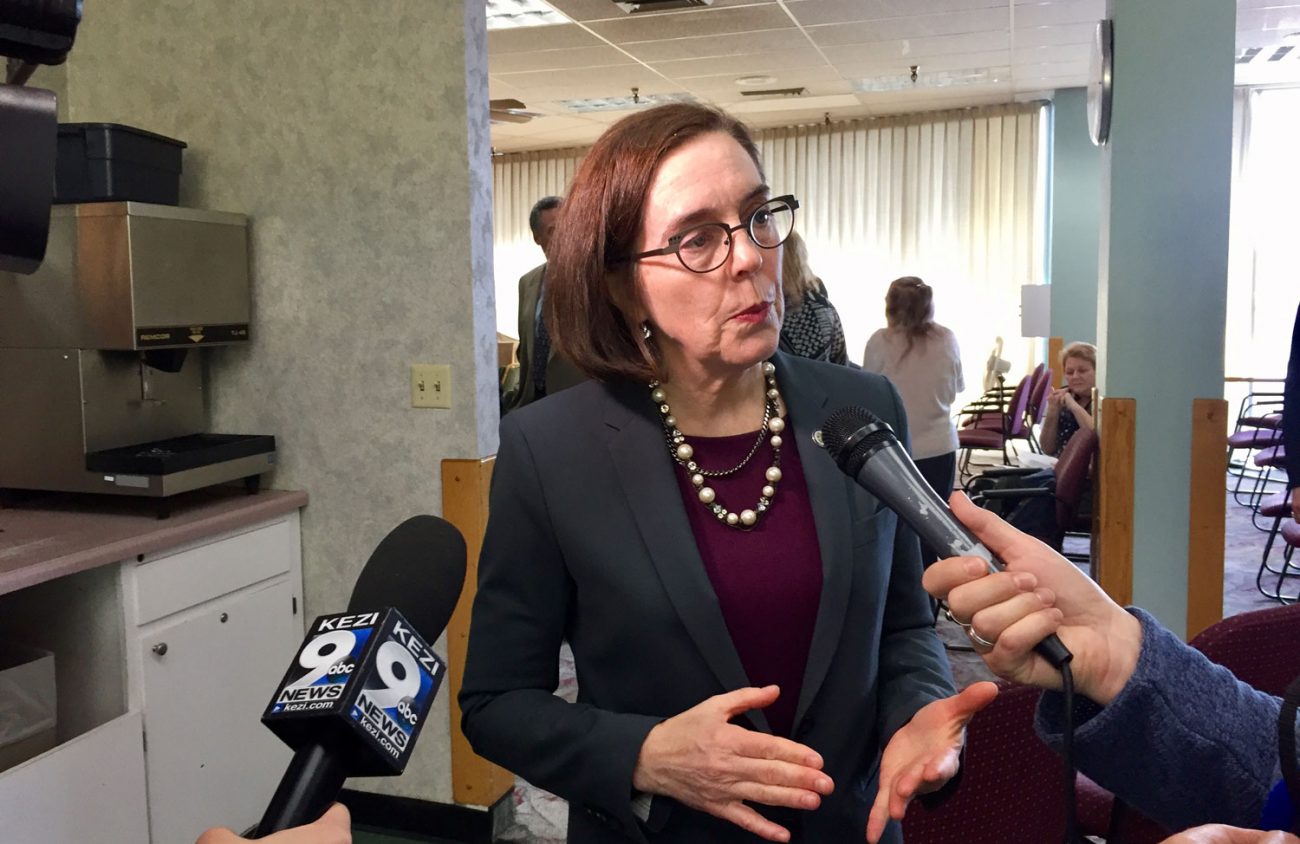Despite the Equal Pay Act of 1963 and federal civil rights laws, American women earn on average approximately 80 cents on the dollar compared to men — the gap widens for African American women who earn 63 cents and Hispanic women who earn 54 cents, according to a U.S. Senate news release.
New legislation introduced in both Congress and in the Oregon Legislature aims to close loopholes, bolstering current laws, and would introduce new protections for workers who take legal action against their employers.
The Paycheck Fairness Act, U.S. House Resolution 1869, was introduced by Democratic Rep. Rosa DeLauro on April 4 — Equal Pay Day — and is now in the House Committee on Education and Workforce.
Both Oregon senators Jeff Merkley and Ron Wyden announced their co-sponsorship for the Paycheck Fairness Act in support of closing the wage gap.
“The Paycheck Fairness Act would bring equal pay law into line with other civil rights law and address the problem of pay inequity between men and women by requiring employers to show that disparities in pay between men and women are job related and not sex-based,” Merkley wrote in an email to Eugene Weekly.
Under the bill, employers would be prohibited from retaliating against employees who discuss compensation with their coworkers and would make filing class-action lawsuits based on pay discrimination easier, according to Merkley.
Oregon House Bill 2005 is sponsored by Rep. Julie Fahey, a Democrat representing west Eugene and Junction City. It passed in the House 36 to 24 on March 28. The bill had a first reading in the Senate on March 29 and is now in the Senate Committee on Workforce.
Fahey says the most concrete change made by this proposed legislation is preventing employers from screening potential hires based on their past salaries.
“That’s important because it will help break the cycle of pay disparity,” she says. “So if you’ve previously worked at a job with a lower wage, this ensures that job offers are made [based on] how employers value the position, not based on your past salary.”
Internal hires are exempt from the salary screening provision.
HB 2005 also protects workers from “pay discrimination, retaliation against a worker for consulting a lawyer or filing a claim and retaliation against a worker for inquiring about wages,” according to an Oregon House Majority Office press release.
Gov. Kate Brown says she’s hopeful the Legislature will move forward with the bill. “I know from both personal experience and my work on the ground that it’s absolutely unacceptable for people to get paid less simply because they are women,” she tells EW.
“I think we need to use every single tool in the tool box that we have to make sure that women receive equal pay for doing the same thing as men,” Brown says.
The Oregon Center for Public Policy says the reasoning behind the wage gap is complex. In the OCPP’s 2016 gender pay gap report, research found that “education is not a factor.”
In fact, average Oregon women over 25 with graduate degrees earn less than men with bachelor’s degrees, according to an OCPP analysis.
Policy analyst Janet Bauer says HB 2005 can be helpful because it will set standards with human resources departments.
“One of the things that is a factor in the wage gap is a kind of discrimination that undervalues the work of women and that can be the type of work that women can engage in,” Bauer says. “So for instance, when women go into an occupation where they haven’t been before, their relative wages fall.”
Bauer says this is true of fields like journalism, higher education and human resources.
“I don’t think we are ever going to find a single thing that will fix the pay gap once and for all,” Bauer says. “I think that there will need to be quite a number of additional steps that can address some of the other issues that contribute to the pay gap.”
The University of Oregon is currently being sued by a psychology professor for paying her less than her male colleagues in violation of the federal Equal Pay Act.
Merkley says, “Equal pay for equal work is an important place to start.”
He adds, “Additionally, raising the federal minimum wage would help more than 28 million workers – disproportionately women and people of color.”
